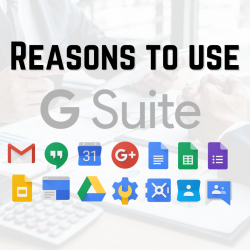
Part I
All of your marketing activities are built on the basis of your website. It’s where your current and potential customers go to discover more about your products or services, as well as your company as a whole. Your website is where potential partners can learn more about your company and where customers can schedule a demo or seek additional information about your products or services. It’s also the location of your landing pages, which are the pages that visitors arrive at after clicking on one of your adverts.
In this article, we’ll look at what website management entails and how it may help you increase your ROI.
What Is Website Management and How Does It Work?
Website management is a word used to describe the process of merging multiple services in order to successfully maintain your website. In most cases, website management entails:
- Website security
- Content Management on website
- Website Support
All of your marketing activities are built on the basis of your website. It’s where your current and potential customers go to discover more about your products or services, as well as your company as a whole. Your website is the place where potential partners can learn more about your company and where prospects can schedule a demo.
Outsourcing website maintenance services to a web design agency or a digital marketing agency that offers website maintenance services is essential for effective website administration, especially if you’re running a small business. Larger firms may have dedicated in-house teams in charge of the continuing management of their websites.
Assume you’ve previously had a website designed or upgraded by a designer or an agency. In that scenario, they may include continuous website administration services in their service portfolio, which you can take advantage of.
A Secure Website Ranks Well and Reduces Website Downtime
Hackers and fraudsters are always trying to break into websites. These attacks can cause your website to crash, infect the device that your users are using, phish for potentially sensitive information, and more.
As you might expect, any attack on your website can have severe consequences for your organization, especially if sensitive data is compromised or your website is down for an extended period of time.
In the event of an attack, you may encounter some difficulties such as:
- Visitors and buyers to your website lose trust in your brand, especially if your website is down for an extended period of time.
- Your website has a poor user experience and loads slowly.
- If personal client information is compromised, there could be legal ramifications.
Passive management, such as setting up excellent firewalls to stop prospective hackers, and active management, such as regular virus scans and keeping your website architecture up to date, are both important aspects of ongoing website security.
Good web security also helps your search visibility. An analysis of over 1 million results, found that websites with a Secure Sockets Layer (SSL) certificate in place consistently ranked higher than websites without this certificate.
Your traffic will increase if you upload SEO-optimized content and optimize existing content.a
The structure of a website has a significant impact on its SEO. Not all web designers and developers adhere to these best practices while creating websites. The site may be attractive, and it may even convert well.
Page Speed
The loading speed of your page can be detected by search engine web crawlers. Slow websites will already have high bounce rates, which is terrible for conversions, but to make matters worse, search engines will penalize slow websites. The Google algorithm, according to evidence, measures this in the time-to-first-byte data load speed.
Submitted to Search Engines
If a site is discoverable but web crawlers can’t find it for whatever reason, it might be manually submitted to search engines for indexing. Team members should continue to look for the site in the target search engines, usually by typing the URL into the search bar, to see if it has been indexed and, if necessary, submit it for indexing.
Search engines can read it.
Search engines assign ranks based on an analysis of your site’s data performed by AI programs known as “web crawlers,” which scour the internet for new websites and re-evaluate old ones. Search engines create a “map” of the internet by keeping an “index” of every site they uncover, as well as a map of the links that connect those sites.
Author – Upul Chandana






